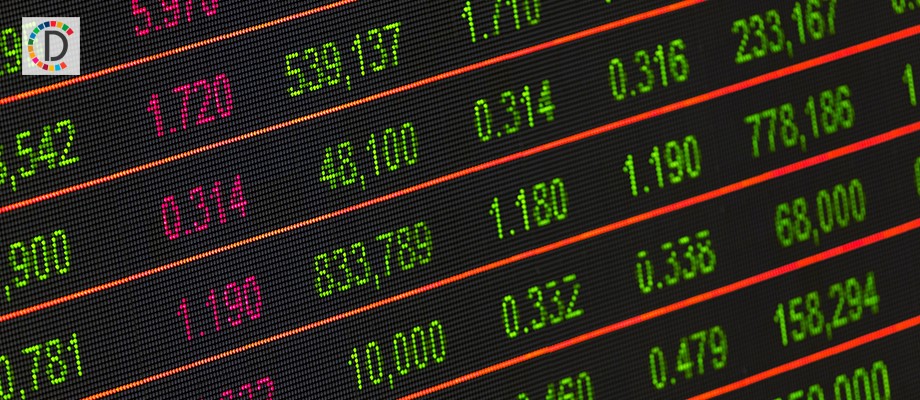Phase-1 trade deal with US 'addressed' mutual concerns, 'good' for both sides: China

- Country:
- China
China on Thursday said the phase-1 trade deal with the US "considerably addressed" mutual concerns and is "good" for both the countries, as the world's two largest economies move forward to end their bitter two-year tariff war that has ruptured supply chains, rattled markets and contributed to a global slowdown. On Wednesday, President Donald Trump and Chinese Vice Premier and top trade negotiator Liu He signed the phase-1 of the trade deal at a special ceremony at the White House, raising hopes of improvement of trade ties between the two nations hit by the tit-for-tat tariff hikes of nearly half-a-trillion dollars worth of products.
Trump, however, refused to roll back the massive tariff imposed on import of Chinese goods and said he will roll back the tariffs only if the second phase of the trade deal is signed. The trade deal, considered as major political and diplomatic victory for President Trump, came on a day when the House voted to sent his impeachment trial to the Senate.
Trump, who has used tariff as a leverage in trade talks with major economic powers of the world, mainly China, asserted that he will continue with his policies on tariffs. He also said that there will be no phase 3. Briefing the Chinese media after signing the deal, Liu said the phase-1 trade agreement has "considerably addressed the concerns" of both sides.
It has both economic and political significance with bearing on world peace and prosperity, state-run Xinhua news agency quoted Liu as saying. The deal has injected positive energy into the stability and development of the world economy, he said, adding that China's commitments under the deal on intellectual property rights (IPR) protection, technology transfer and financial market opening would also be applied to Beijing's other trading partners.
China will further deepen domestic reforms and open up wider to the outside world, Liu said. Commenting on the state of the Chinese economy, which was on a slowdown due to the trade war, Liu said China's gross domestic product is estimated to record over six per cent for the full year of 2019, which would fulfil the annual growth target between 6 and 6.5 per cent.
While Trump praised the deal, asserting that it "marks a sea change in international trade", Chinese President Xi Jinping said the agreement "is good for China, for the US and for the whole world". In his letter to Trump, that was read out by Liu during the signing ceremony, Xi said, "It (the deal) shows that the two countries have the ability to act on the basis of equality and mutual respect, and work through dialogue and consultation to properly handle and effectively resolve relevant issues."
In the next step, Xi said, the two sides should implement the deal in real earnest and optimise its positive impact to make greater progress in the bilateral trade ties. In an apparent reference to the US ban on Chinese telecom giant Huawei, Xi called on Washington to treat Chinese companies fairly.
"I hope the US side will treat fairly Chinese companies and their regular trade and investment activities, and give support to the collaboration between enterprises, research institutes, and schools and colleges of the two countries as it will help enhance mutual trust and cooperation between us," he said. Significantly the text of Xi's letter was released by the White House and not by the Chinese official media.
According to analysts, with relentless pro-democracy protests in Hong Kong and increasing strategic competition with the US on many fronts, China has agreed for some intrusive mechanism to enforce the deal. Also much to the chagrin of Beijing, America's 25 per cent tariff on USD 360 billions worth of Chinese products stays. Trump launched the trade war with China in 2018, demanding Beijing to reduce the massive trade deficit, which was USD 375.6 billion in 2017.
Both sides so far have imposed additional tariffs on nearly USD half trillion worth of goods. The US has imposed tariffs on more than USD 360 billions of Chinese goods, and China has retaliated with tariffs on over USD 110 billions of American products. China's official media hailed the deal as a hard-fought agreement, which should be cherished by both the sides.
"China and the US eventually signed the phase one trade agreement. The hard-fought agreement should be cherished by both sides," the Global Times said in its editorial. The editorial noted that though a huge uncertainty remains, which might make it difficult for China and the US to reach a comprehensive trade deal, "the preliminary agreement will enlighten both sides' further efforts".
Xinhua in its commentary piece said the deal shows that the two sides are looking for "a more reasonable approach" to managing their differences. However, it warned that the deal should only be considered "a good start" to address a dispute that is "long-term, complicated and arduous". The People's Daily, the official media of the ruling Communist Party of China, struck a hopeful note, stating that the bilateral trade relationship "is now standing at a new starting point".
The deal is less of an agreement and "more of an MoU with spending targets", Beijing-based current affairs commentator Einar Tangen said. "Enforcement will be a major issue, both politically and practically," he told PTI.
Shen Jianguang, chief economist at Chinese fintech giant JD Finance, said despite the deal, the road ahead remains full of obstacles.
(This story has not been edited by Devdiscourse staff and is auto-generated from a syndicated feed.)
ALSO READ
Pakistan Peoples Party nominates former PM Gilani for Senate chairman
Pakistan Tehreek-e-Insaf wants to run away from Senate elections: PML-N
SIC moves Pak poll body to postpone Senate chairman, deputy chairman election
Japan's Kishida, ahead of US trip, seeks stronger military ties with Washington and other partners
SIC moves Pak poll body to postpone Senate chairman, deputy chairman election










